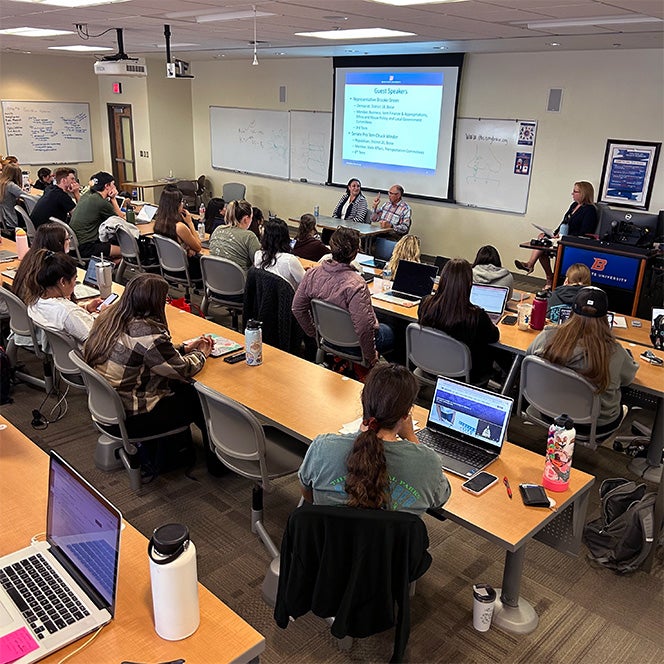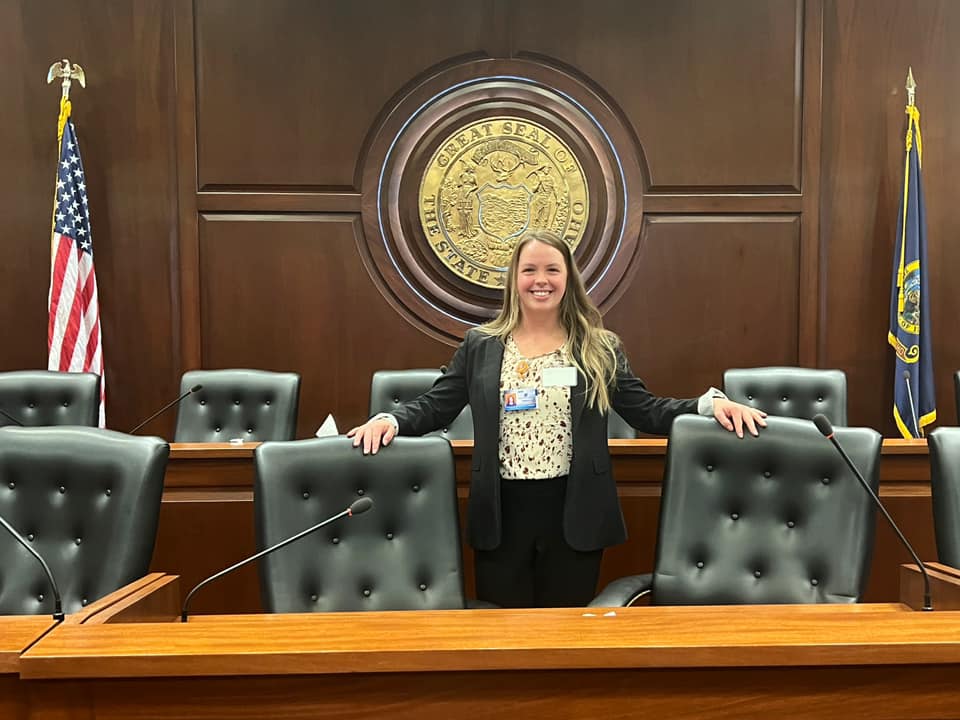
What kind of impact could we make if we all spoke up for positive change we believe in? What if, instead of complaining about issues, we leveraged our influence to make a difference?
Adjunct professor Corey Surber is helping senior nursing students consider just that in their her Policy, Power, and Voice class.
Surber is the Director of Advocacy for Trinity Health (the parent health system for Saint Alphonsus) and she’s been an adjunct in the College of Health Sciences for 15 years. Her role bridges the gap between the policy-making front lines and the classroom. She capitalizes on her professional network, bringing in guest speakers from Idaho’s legislative branch.
This semester, students heard firsthand from both major political parties – and both houses of Idaho’s Legislature – when Rep. Brooke Green and Senate President Pro Tem Chuck Winder visited class.
“This class is important to the curriculum because it grounds nurses in the importance of paying attention to the world around them, and how public policy affects their work and their patients,” Surber said.
A day at the Capitol
During the spring semester when the Idaho Legislature is in session, Surber encourages student nurses to participate in the American Nurses Association’s Nurses Day at the Capitol Building. Students receive a tour, sit in on committee meetings and visit with legislators.

Last year, a group of nurses and students also spoke with Lieutenant Governor Scott Bedke.
“It was huge for them,” Surber recalled. “He basically said, ‘We want to hear from nurses; what questions do you have for us?’”
Surber’s current teaching assistant, senior Brittany Braislin, took the class last semester and attended the event. She didn’t expect to speak at all, but with the encouragement of Surber and other nurses around her, she did.
“Nurses Day at the Capitol was a very powerful day to be a part of,” Braislin said. “After the meeting ended, I was commended for speaking up and using my own experience to talk about something that I knew was affecting healthcare and the nursing field.”
“Honestly, I have never felt so empowered like that by a group of strangers,” she said. “It was truly an incredible feeling.”
Read more about her experience
Going far beyond politics
But the class isn’t just about state and federal public policy, although that is Surber’s wheelhouse. They also cover areas like HIPAA privacy regulations, unconscious biases, tribalism, civil discourse, de-escalation and how nurses can navigate patient interactions amidst it all.
Most importantly, Surber emphasizes “nurses’ ability to use their voice.” The class helps students recognize their strengths and how they can use them to build relationships and influence change. And Surber doesn’t just mean in policy spheres, but within their own employment organizations.
She hopes to see them empowered “to make change where they think it’s needed rather than just gossiping about it in the break room or being frustrated about it,” Surber said. “If you’re not getting involved in using your voice, then you kind of lose your right to sit and gripe about it.”
“I was surprised by how much this class helped prepare me to be an advocate for change,” said Braislin. “After completing this class, and then coming back to be a Teaching Assistant for it, I have learned even more about the connections nurses have with the larger picture.”
“This class helped me navigate health policy and its nuances, how to be involved in, or start working towards, organizational changes, and how to have a voice for change.”
Brittany Braislin
Learn more about Policy, Power, and Voice